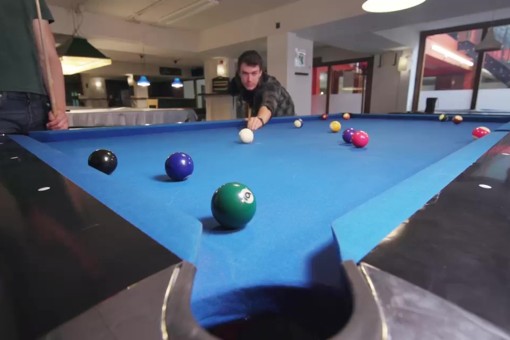 science TechnologyLearning physics through a game of poolWhat do billiard balls and Newton’s laws have in common? Quite a lot. Gijs Frijters, an Applied Physics student at the University of Twente, and his classmates studied force, motion, and rotation using a pool table. Gijs shares, “To some extent, studying Physics does change how I look at everyday things.”
science TechnologyLearning physics through a game of poolWhat do billiard balls and Newton’s laws have in common? Quite a lot. Gijs Frijters, an Applied Physics student at the University of Twente, and his classmates studied force, motion, and rotation using a pool table. Gijs shares, “To some extent, studying Physics does change how I look at everyday things.”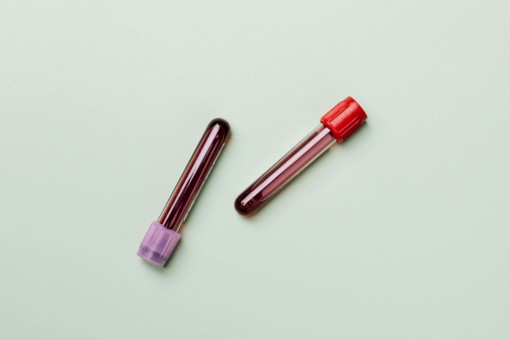 science HealthBehind the scenes of blood donation for researchEvery once in a while, in a quiet corner of the TechMed Centre of the University of Twente, anonymous employees roll up their sleeves and donate a small tube of blood. Not to save a life today, but to provide real human blood for scientific research.
science HealthBehind the scenes of blood donation for researchEvery once in a while, in a quiet corner of the TechMed Centre of the University of Twente, anonymous employees roll up their sleeves and donate a small tube of blood. Not to save a life today, but to provide real human blood for scientific research.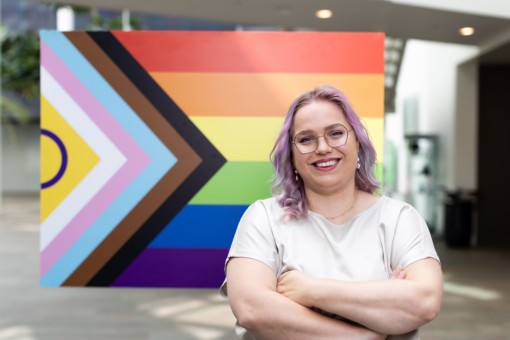 science HealthHow digital technology can support vulnerable groupsYou are young, struggling with your identity, and feel misunderstood by those around you. When you finally take the step to seek help, you find yourself on a two-year waiting list. In the meantime? Little to no support. For many LGBTQ young people, this is not a fictional scenario, but the harsh reality. The healthcare system is stuck: GPs are at a loss and psychological care is overloaded. But what if digital technology can play a role in this?
science HealthHow digital technology can support vulnerable groupsYou are young, struggling with your identity, and feel misunderstood by those around you. When you finally take the step to seek help, you find yourself on a two-year waiting list. In the meantime? Little to no support. For many LGBTQ young people, this is not a fictional scenario, but the harsh reality. The healthcare system is stuck: GPs are at a loss and psychological care is overloaded. But what if digital technology can play a role in this?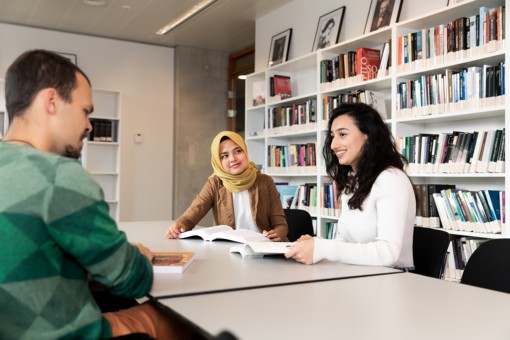 student Bachelor11 interesting minors you can take at the University of TwenteChoosing a minor is not an easy task. With more than 100 minors available at the University of Twente alone, the options are numerous. Whether you want to broaden your knowledge, develop new skills, dive deeper into one specific topic, or try something completely different, there is always a minor that suits your interests and ambitions. Need some inspiration? We’ve highlighted a few for you!
student Bachelor11 interesting minors you can take at the University of TwenteChoosing a minor is not an easy task. With more than 100 minors available at the University of Twente alone, the options are numerous. Whether you want to broaden your knowledge, develop new skills, dive deeper into one specific topic, or try something completely different, there is always a minor that suits your interests and ambitions. Need some inspiration? We’ve highlighted a few for you! science HealthThis tool sees what you (don’t) feel: prolonged griefWe all face loss at some point in our lives. For some people, the grief becomes increasingly bearable, but others struggle with their grief for years. That is why researcher Lonneke Lenferink is working on the mourning meter, a scientifically validated questionnaire that measures the severity of grief and thus keeps an eye on it.
science HealthThis tool sees what you (don’t) feel: prolonged griefWe all face loss at some point in our lives. For some people, the grief becomes increasingly bearable, but others struggle with their grief for years. That is why researcher Lonneke Lenferink is working on the mourning meter, a scientifically validated questionnaire that measures the severity of grief and thus keeps an eye on it. science DigitalisationHow Big Tech is weaponising public opinionPropaganda used to be distributed through leaflets or broadcast over the radio. Today, it reaches us with a click on our smartphones, and it is tailored to our preferences. The way we consume information has changed - and with it, the way we form our beliefs about political and social institutions. Assistant professor Adam Heschke is worried about what comes next.
science DigitalisationHow Big Tech is weaponising public opinionPropaganda used to be distributed through leaflets or broadcast over the radio. Today, it reaches us with a click on our smartphones, and it is tailored to our preferences. The way we consume information has changed - and with it, the way we form our beliefs about political and social institutions. Assistant professor Adam Heschke is worried about what comes next.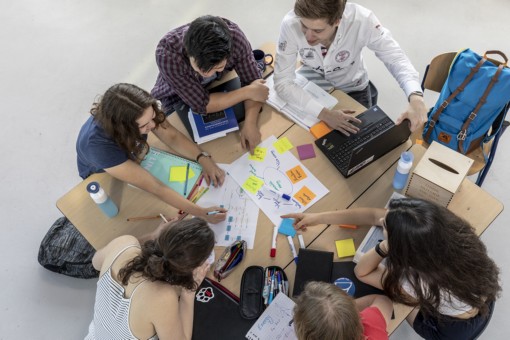 student Study choiceWhich management study suits me?How can companies become more sustainable without compromising their profits? How can we keep healthcare affordable and accessible for everyone? And how can governments protect citizens’ safety and privacy rights in the digital age? Effective management is crucial in addressing such questions, especially in a world full of technological and societal developments. Are you considering a management-related study but unsure which direction to take? Let’s explore your options.
student Study choiceWhich management study suits me?How can companies become more sustainable without compromising their profits? How can we keep healthcare affordable and accessible for everyone? And how can governments protect citizens’ safety and privacy rights in the digital age? Effective management is crucial in addressing such questions, especially in a world full of technological and societal developments. Are you considering a management-related study but unsure which direction to take? Let’s explore your options.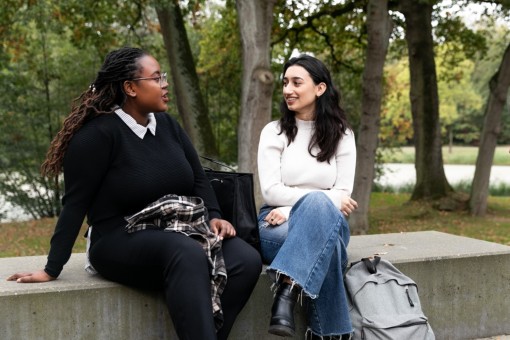 student Study choiceSocial science: which study programme suits me?Why do people believe in conspiracy theories? How do you market a new, sustainable product? And how do new technologies influence human behaviour, political choices and our health care system? All very different questions, but all equally relevant in today’s modern, digital society. Are you considering pursuing a study in social science, but are you still hesitating about which study programme fits you best? In this article, you’ll discover some possibilities!
student Study choiceSocial science: which study programme suits me?Why do people believe in conspiracy theories? How do you market a new, sustainable product? And how do new technologies influence human behaviour, political choices and our health care system? All very different questions, but all equally relevant in today’s modern, digital society. Are you considering pursuing a study in social science, but are you still hesitating about which study programme fits you best? In this article, you’ll discover some possibilities!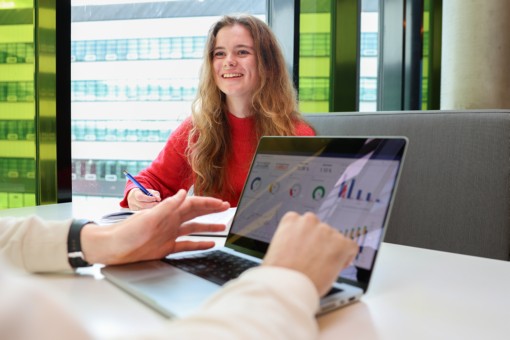 student Study choiceData science: which study programme suits me?Data science is a very broad field that innovates with immense speed – think of how within a year’s time, ChatGPT has grown out to be one of the most popular chatbots worldwide, or how the TikTok algorithm is able to show you very specific videos that perfectly fit your interests. This means that there’s a huge demand for data specialists: people who can turn data into valuable insights and practical solutions for a better world. Do you see yourself becoming such a specialist? In this article, you’ll discover which data-related study is the perfect fit for you!
student Study choiceData science: which study programme suits me?Data science is a very broad field that innovates with immense speed – think of how within a year’s time, ChatGPT has grown out to be one of the most popular chatbots worldwide, or how the TikTok algorithm is able to show you very specific videos that perfectly fit your interests. This means that there’s a huge demand for data specialists: people who can turn data into valuable insights and practical solutions for a better world. Do you see yourself becoming such a specialist? In this article, you’ll discover which data-related study is the perfect fit for you!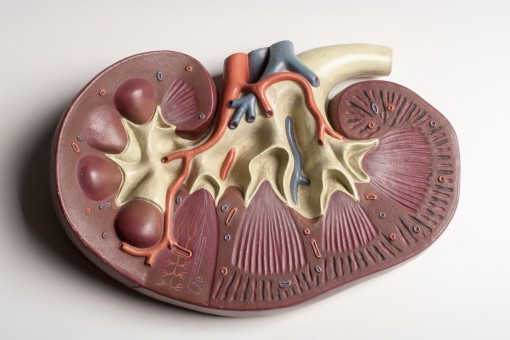 science HealthLab-grown kidney tubules: the key to a new treatment?For patients born with a congenital genetic kidney disease, finding treatment is often difficult. The complex structure of the kidney tubules makes it difficult to research to find solutions for this. Through close collaboration between researchers from the Radboudumc and the University of Twente (Technical Medical Centre) and with the help of a grant from the TURBO program, treatment for these patients can get closer.
science HealthLab-grown kidney tubules: the key to a new treatment?For patients born with a congenital genetic kidney disease, finding treatment is often difficult. The complex structure of the kidney tubules makes it difficult to research to find solutions for this. Through close collaboration between researchers from the Radboudumc and the University of Twente (Technical Medical Centre) and with the help of a grant from the TURBO program, treatment for these patients can get closer.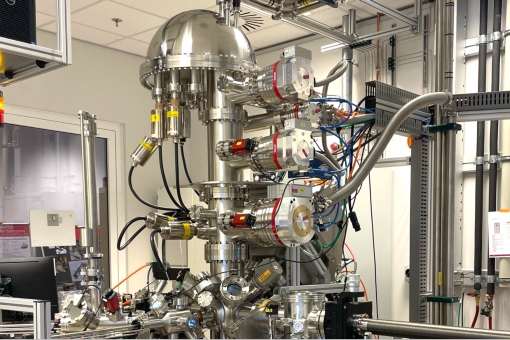 science ClimateThe battery in your smartphone could last much longer than it does nowBatteries are everywhere. In your pocket, in your car and in lots of other places. Yet, despite their ubiquity, batteries are far from reaching their full potential. They degrade over time, charge slowly and are often made of unethically sourced or environmentally harmful materials. Prof. Mark Huijben and his Research Group are looking into novel battery materials to extend battery life and improve performance across applications, from smartphones to heavy machinery.
science ClimateThe battery in your smartphone could last much longer than it does nowBatteries are everywhere. In your pocket, in your car and in lots of other places. Yet, despite their ubiquity, batteries are far from reaching their full potential. They degrade over time, charge slowly and are often made of unethically sourced or environmentally harmful materials. Prof. Mark Huijben and his Research Group are looking into novel battery materials to extend battery life and improve performance across applications, from smartphones to heavy machinery.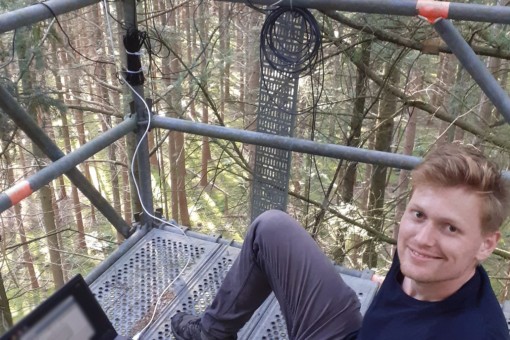 science ClimateWhat satellites don’t tell us (yet): The Veluwe as a living laboratoryIn the heart of the Netherlands, among the centuries-old trees of the Veluwe, a new way of studying our planet is taking shape. Using advanced sensors, Paul Vermunt is comparing mathematical models with satellite data. His ultimate goal is to enable satellites from among other ESA to measure the water content in forests.
science ClimateWhat satellites don’t tell us (yet): The Veluwe as a living laboratoryIn the heart of the Netherlands, among the centuries-old trees of the Veluwe, a new way of studying our planet is taking shape. Using advanced sensors, Paul Vermunt is comparing mathematical models with satellite data. His ultimate goal is to enable satellites from among other ESA to measure the water content in forests.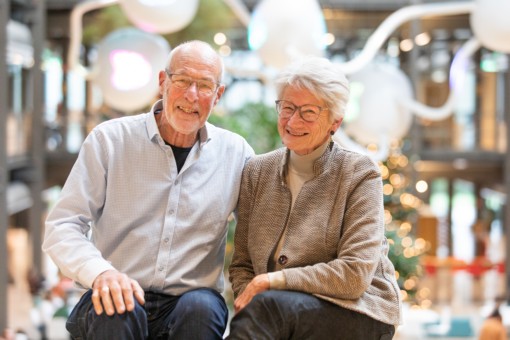 science HealthAfter 17 years of 'acting', Leo and Anita take their final bow as simulation patients“We joined the UT together. I applied for the role of simulation patient, and my husband planned to be the driver and read a book,” says Anita Lettink (78). At least, that was the plan, but things turned out quite differently.
science HealthAfter 17 years of 'acting', Leo and Anita take their final bow as simulation patients“We joined the UT together. I applied for the role of simulation patient, and my husband planned to be the driver and read a book,” says Anita Lettink (78). At least, that was the plan, but things turned out quite differently. science Start-upsGeanny Amor dos Santos: from intern to gamechanger in process optimizationProcesses and technology enable people to work more efficiently within an organization. However, these structures and processes evolve naturally over time, making them complicated or unfitting for the needs and ambitions of the organization. With Flawless Workflow, Geanny Amor dos Santos helps to align processes, software, and data within organizations so that the infrastructure supports the people.
science Start-upsGeanny Amor dos Santos: from intern to gamechanger in process optimizationProcesses and technology enable people to work more efficiently within an organization. However, these structures and processes evolve naturally over time, making them complicated or unfitting for the needs and ambitions of the organization. With Flawless Workflow, Geanny Amor dos Santos helps to align processes, software, and data within organizations so that the infrastructure supports the people.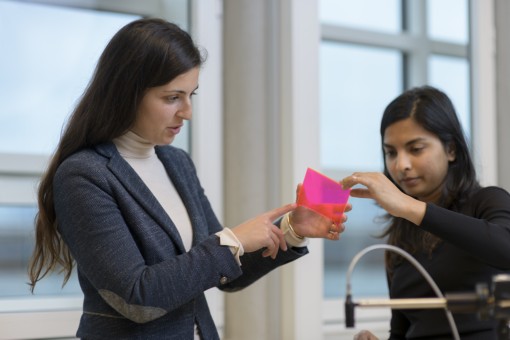 science ClimateWhy do solar panels struggle in winter?Did you know that in winter, solar panels produce only 10% of their summer output? In a country like the Netherlands, where we lead the world with 3.5 solar panels per person, this seasonal drop is a major challenge. Why do solar panels produce so little energy in winter? And what can we do about it?
science ClimateWhy do solar panels struggle in winter?Did you know that in winter, solar panels produce only 10% of their summer output? In a country like the Netherlands, where we lead the world with 3.5 solar panels per person, this seasonal drop is a major challenge. Why do solar panels produce so little energy in winter? And what can we do about it?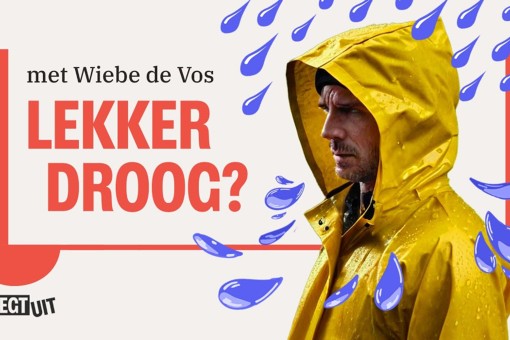 science TechnologyThis is why there are holes in your raincoatHow does your raincoat stop rain while letting your sweat through? This is due to the special properties of the fabric and design. In this video, UT professor Wiebe de Vos explains how this works.
science TechnologyThis is why there are holes in your raincoatHow does your raincoat stop rain while letting your sweat through? This is due to the special properties of the fabric and design. In this video, UT professor Wiebe de Vos explains how this works.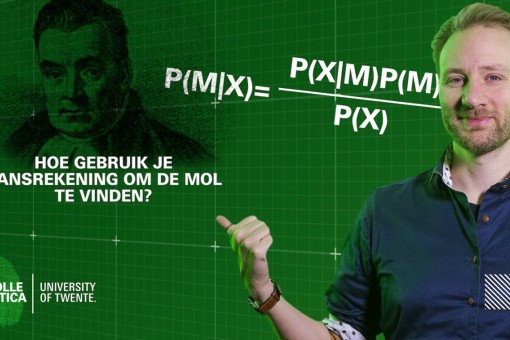 science Technology'Wie is de Mol?' through the eyes of a statisticianThere are many ways to predict the mole. Mole spotters often talk about body language, intrigue, granted screen time or social behaviour. Nice, vague and exciting, of course, and good for a heated discussion but could it be more exact? What about mathematics, can it help us here too?
science Technology'Wie is de Mol?' through the eyes of a statisticianThere are many ways to predict the mole. Mole spotters often talk about body language, intrigue, granted screen time or social behaviour. Nice, vague and exciting, of course, and good for a heated discussion but could it be more exact? What about mathematics, can it help us here too?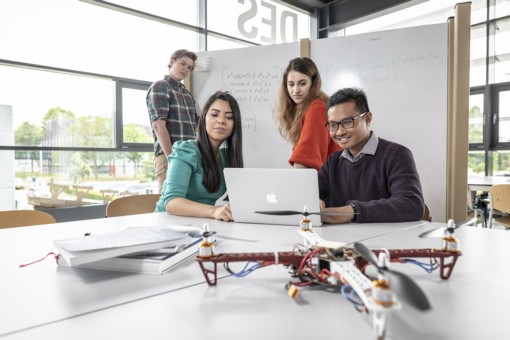 student Study choiceTech and engineering: which study programme suits me?The chips in your phone, the sustainable packaging of your shampoo bottle, the bridge you cycle over every day, or the smart lights in your house — we often don’t realise how much technology is behind the things we use daily. How do those chips make your phone respond so quickly? What makes packaging environmentally friendly? How does a bridge stay sturdy, and what innovations power smart lighting? If you’re curious about the technology behind everyday objects and want to learn how to create such innovations yourself, a technical study might be perfect for you. But which study programme suits you best?
student Study choiceTech and engineering: which study programme suits me?The chips in your phone, the sustainable packaging of your shampoo bottle, the bridge you cycle over every day, or the smart lights in your house — we often don’t realise how much technology is behind the things we use daily. How do those chips make your phone respond so quickly? What makes packaging environmentally friendly? How does a bridge stay sturdy, and what innovations power smart lighting? If you’re curious about the technology behind everyday objects and want to learn how to create such innovations yourself, a technical study might be perfect for you. But which study programme suits you best? science Circular EconomyFrom bubbles to business: how FoamPrint3D is making the foam industry sustainableFoam is everywhere around us, even though we often don’t notice it. Think of the cushioning in your headphones, the seat of your desk chair, your car seat, and even your shoes. However, that also means a lot of foam ends up in landfills, and production dramatically impacts the environment.
science Circular EconomyFrom bubbles to business: how FoamPrint3D is making the foam industry sustainableFoam is everywhere around us, even though we often don’t notice it. Think of the cushioning in your headphones, the seat of your desk chair, your car seat, and even your shoes. However, that also means a lot of foam ends up in landfills, and production dramatically impacts the environment. science Chip TechnologyThis flow sensor could change vertical farming and data centresUT PhD candidate Thomas Leigh Hackett has devised a way to improve the air speed measurements of a so-called flow sensor by as much as 511%. This could lead to better sensors for horticulture and better air flow in data centers.
science Chip TechnologyThis flow sensor could change vertical farming and data centresUT PhD candidate Thomas Leigh Hackett has devised a way to improve the air speed measurements of a so-called flow sensor by as much as 511%. This could lead to better sensors for horticulture and better air flow in data centers.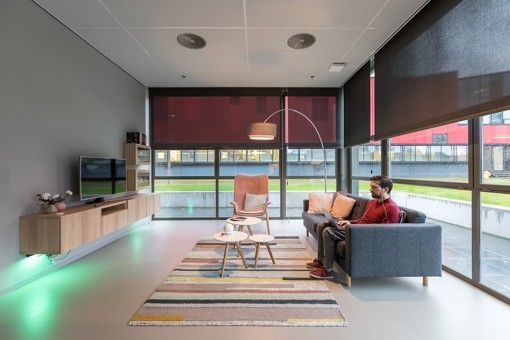 science HealthHow digital technology places less burden on healthcareImagine a digital flower that blooms when you hit your daily excercise goal or wilts when you miss a medication dose. Creative technology like this, designed by students and researchers at the University of Twente, is part of the network of the expertise Centre for Remote Monitoring & Coaching (eCMC), an initiative of TechMed Centre of University of Twente.
science HealthHow digital technology places less burden on healthcareImagine a digital flower that blooms when you hit your daily excercise goal or wilts when you miss a medication dose. Creative technology like this, designed by students and researchers at the University of Twente, is part of the network of the expertise Centre for Remote Monitoring & Coaching (eCMC), an initiative of TechMed Centre of University of Twente. science Chip TechnologyFrom sand to smartphoneThe smartphone in your pocket and other electronic devices are packed with microchips. With a huge demand for smartphones, computers, and other smart technologies, there is a global shortage of these chips. Production processes simply cannot keep pace with the immense demand. But why does making a computer chip take so long?
science Chip TechnologyFrom sand to smartphoneThe smartphone in your pocket and other electronic devices are packed with microchips. With a huge demand for smartphones, computers, and other smart technologies, there is a global shortage of these chips. Production processes simply cannot keep pace with the immense demand. But why does making a computer chip take so long?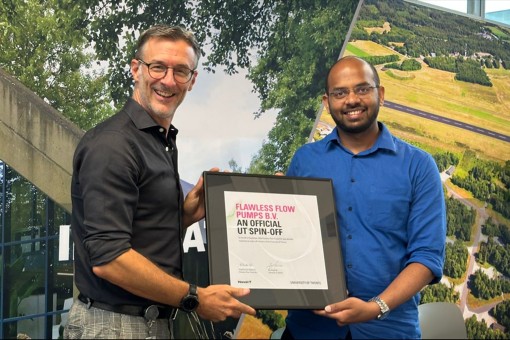 science HealthUT scientist Keerthi makes dream come true with his own spin-off companySome researchers start their PhD to contribute to fundamental research, while others dream of starting their own company based on their research. Keerthivasan Rajamani (Keerthi for short) was one of those entrepreneurial researchers. He founded UT spin-off Flawless Flow Pumps based on his research on magnetic pumps. He shares his journey from researcher to entrepreneur.
science HealthUT scientist Keerthi makes dream come true with his own spin-off companySome researchers start their PhD to contribute to fundamental research, while others dream of starting their own company based on their research. Keerthivasan Rajamani (Keerthi for short) was one of those entrepreneurial researchers. He founded UT spin-off Flawless Flow Pumps based on his research on magnetic pumps. He shares his journey from researcher to entrepreneur.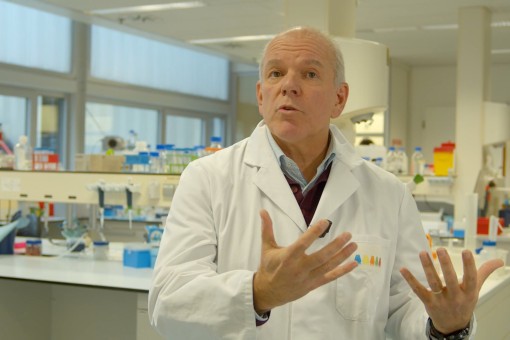 science HealthHow mini hearts-on-chips can save millionsEvery year, cardiovascular disease impacts over 126 million people worldwide. In the quest for effective treatments, researchers are tirelessly working to develop better solutions. However, current animal and test-tube models often fall short in predictive accuracy. Prof. Dr. Robert Passier is at the forefront of this research, combining advanced technologies to create innovative human heart models that function like real human hearts. This groundbreaking invention could lead to safer medications and reduced reliance on animal testing in research.
science HealthHow mini hearts-on-chips can save millionsEvery year, cardiovascular disease impacts over 126 million people worldwide. In the quest for effective treatments, researchers are tirelessly working to develop better solutions. However, current animal and test-tube models often fall short in predictive accuracy. Prof. Dr. Robert Passier is at the forefront of this research, combining advanced technologies to create innovative human heart models that function like real human hearts. This groundbreaking invention could lead to safer medications and reduced reliance on animal testing in research.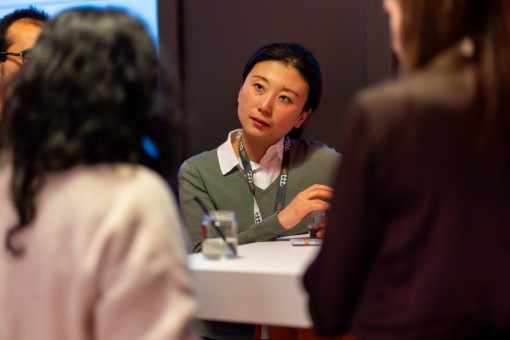 science HealthBreakthrough in medical technology: accurately measuring blood flowWhen performing certain surgeries, such as skin transplantations, it’s essential to monitor blood flow. Sufficient blood flow indicates whether or not the skin is alive. Surgeons currently determine this blood flow by a green dye injection and visual examination with the naked eye. To make this process more accurate and effective, UT spin-off Twente Medical Optics developed a handheld device to measure the blood flow during and after surgery. CEO Kiki Liu shares the story of their innovation.
science HealthBreakthrough in medical technology: accurately measuring blood flowWhen performing certain surgeries, such as skin transplantations, it’s essential to monitor blood flow. Sufficient blood flow indicates whether or not the skin is alive. Surgeons currently determine this blood flow by a green dye injection and visual examination with the naked eye. To make this process more accurate and effective, UT spin-off Twente Medical Optics developed a handheld device to measure the blood flow during and after surgery. CEO Kiki Liu shares the story of their innovation. science DigitalisationHow your mobile internet could be much betterImagine: you’re at a festival, and your phone always has full signal. No more slow internet or apps that won’t load. Sounds like a dream, right? Lotte Weedage, a PhD candidate at the University of Twente, is researching ways to improve the mobile network in the Netherlands, so this could become a reality.
science DigitalisationHow your mobile internet could be much betterImagine: you’re at a festival, and your phone always has full signal. No more slow internet or apps that won’t load. Sounds like a dream, right? Lotte Weedage, a PhD candidate at the University of Twente, is researching ways to improve the mobile network in the Netherlands, so this could become a reality.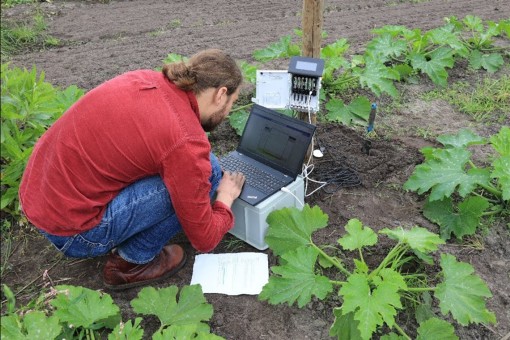 science Circular EconomyIs this the farm of tomorrow?At Citizen Farm Herenboeren Usseler Es, farmers are exploring how data can help them adapt to climate change challenges, such as unpredictable weather and longer growing seasons. Researchers from the University of Twente are helping by providing them with more precise data for better-informed farming decisions. The goal is to enhance local food production while offering valuable insights for farms around the world.
science Circular EconomyIs this the farm of tomorrow?At Citizen Farm Herenboeren Usseler Es, farmers are exploring how data can help them adapt to climate change challenges, such as unpredictable weather and longer growing seasons. Researchers from the University of Twente are helping by providing them with more precise data for better-informed farming decisions. The goal is to enhance local food production while offering valuable insights for farms around the world.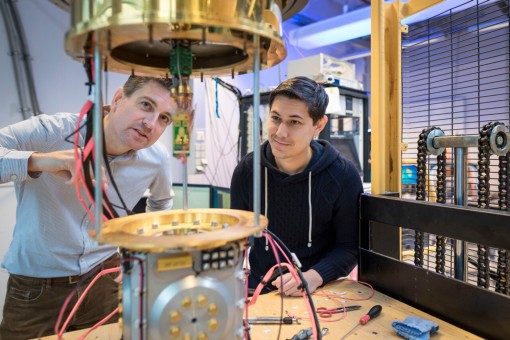 science Chip TechnologyOur tech is a huge energy guzzler, here's how we're changing itIf we continue like this, ICT applications will account for no less than twenty percent of our total electricity consumption by 2030. Data centers, AI, the many millions of questions we ask Google every day... It takes an enormous amount of computing power and therefore energy. This can and must change, agrees Professor Wilfred van der Wiel of the University of Twente.
science Chip TechnologyOur tech is a huge energy guzzler, here's how we're changing itIf we continue like this, ICT applications will account for no less than twenty percent of our total electricity consumption by 2030. Data centers, AI, the many millions of questions we ask Google every day... It takes an enormous amount of computing power and therefore energy. This can and must change, agrees Professor Wilfred van der Wiel of the University of Twente.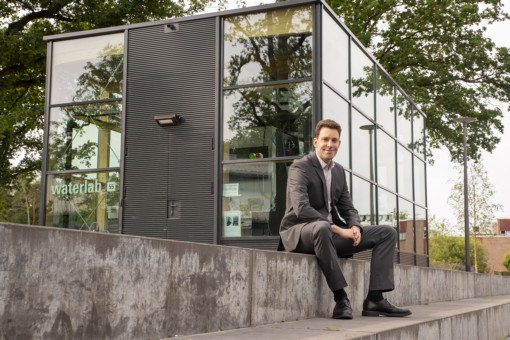 science TechnologyWater, water everywhere... and not a drop to drink: How the Netherlands keeps its drinking water safeThe Netherlands faces a water crisis: too much water, a shortage of water, agricultural fertilisers, and industrial pollution such as PFAS and medicine residues threaten our drinking water supply. Some new businesses are already denied drinking water connections; new residential areas may soon meet the same fate. It is crucial to invest in water technology for a sustainable future.
science TechnologyWater, water everywhere... and not a drop to drink: How the Netherlands keeps its drinking water safeThe Netherlands faces a water crisis: too much water, a shortage of water, agricultural fertilisers, and industrial pollution such as PFAS and medicine residues threaten our drinking water supply. Some new businesses are already denied drinking water connections; new residential areas may soon meet the same fate. It is crucial to invest in water technology for a sustainable future. science HealthThis is the wheelchair of the futureWithin innovation cluster MedTech Twente, people are working on tomorrow's healthcare. UT alumnus Gabriel Costa and Stephanie Jansen, founders of spin-off company J58, talk about the importance of patient-centred innovations, the ecosystem in Twente and making an impact.
science HealthThis is the wheelchair of the futureWithin innovation cluster MedTech Twente, people are working on tomorrow's healthcare. UT alumnus Gabriel Costa and Stephanie Jansen, founders of spin-off company J58, talk about the importance of patient-centred innovations, the ecosystem in Twente and making an impact.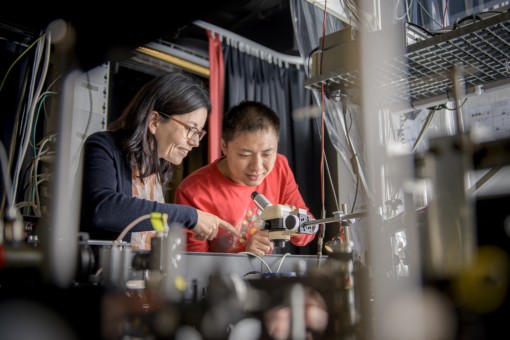 science HealthNovel device for fast detection of sepsisWithin a newly funded project SepsPIC (Highly multiplexed photonics integrated circuit (PIC) sensors for the rapid diagnostics of sepsis), UT Professor Sonia García Blanco and her colleagues are working on a novel device for fast and accurate detection of sepsis. ‘If we are successful, it could dramatically decrease mortality among patients.’
science HealthNovel device for fast detection of sepsisWithin a newly funded project SepsPIC (Highly multiplexed photonics integrated circuit (PIC) sensors for the rapid diagnostics of sepsis), UT Professor Sonia García Blanco and her colleagues are working on a novel device for fast and accurate detection of sepsis. ‘If we are successful, it could dramatically decrease mortality among patients.’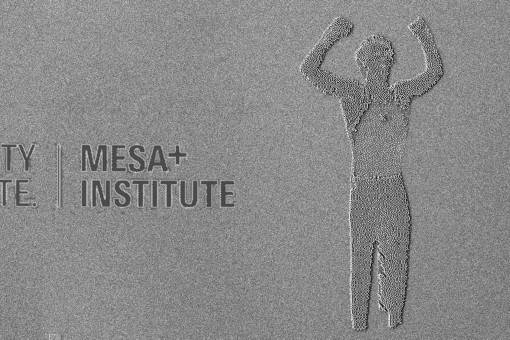 science TechnologyThese athletes are thinner than your hairsThe greatest athletes are awarded medal after medal at the Paris Olympics. At the same time, very small athletes in Twente are imitating them. In MESA+'s Nanolab, a group of enthusiastic PhD students are making Olympians-on-a-chip. They organise the Nanolympics. The best sports fragments are given a place on chips measuring just five by five millimetres.
science TechnologyThese athletes are thinner than your hairsThe greatest athletes are awarded medal after medal at the Paris Olympics. At the same time, very small athletes in Twente are imitating them. In MESA+'s Nanolab, a group of enthusiastic PhD students are making Olympians-on-a-chip. They organise the Nanolympics. The best sports fragments are given a place on chips measuring just five by five millimetres.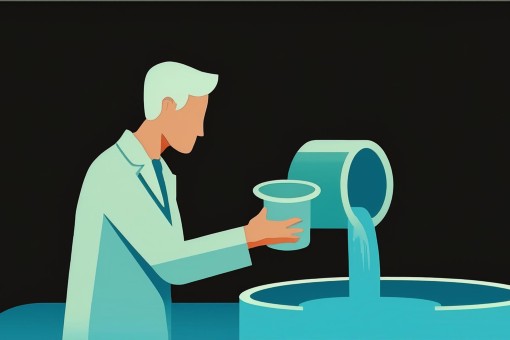 science Circular EconomyOur waste (water) is worth a lotImagine sipping your favourite beer from a cup made of sewage sludge. Researchers at the University of Twente are making it a reality. A team of Profs. Jeroen Cornelissen, Frederik Wurm, and Boelo Schuur are investigating a new process for converting waste materials into bioplastics with the help of bacteria that feed on what people discard daily.
science Circular EconomyOur waste (water) is worth a lotImagine sipping your favourite beer from a cup made of sewage sludge. Researchers at the University of Twente are making it a reality. A team of Profs. Jeroen Cornelissen, Frederik Wurm, and Boelo Schuur are investigating a new process for converting waste materials into bioplastics with the help of bacteria that feed on what people discard daily.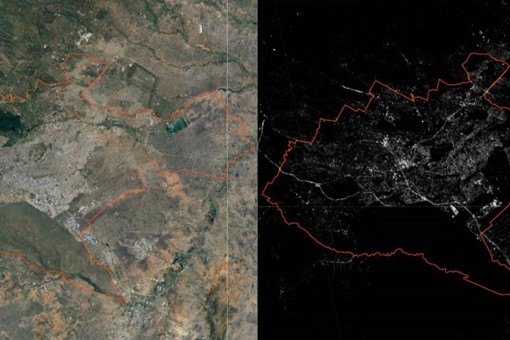 science TechnologyHow satellites expose urban inequalities in the Global SouthMass evictions, daily power outages, and pitch-black streets at night: the challenges that people in the Global South face remain largely overlooked. How can satellite imagery uncover the hidden realities of urbanisation? Prof. Dr. Monika Kuffer’s research strives to spotlight urban inequalities and prompt policymakers to take action.
science TechnologyHow satellites expose urban inequalities in the Global SouthMass evictions, daily power outages, and pitch-black streets at night: the challenges that people in the Global South face remain largely overlooked. How can satellite imagery uncover the hidden realities of urbanisation? Prof. Dr. Monika Kuffer’s research strives to spotlight urban inequalities and prompt policymakers to take action.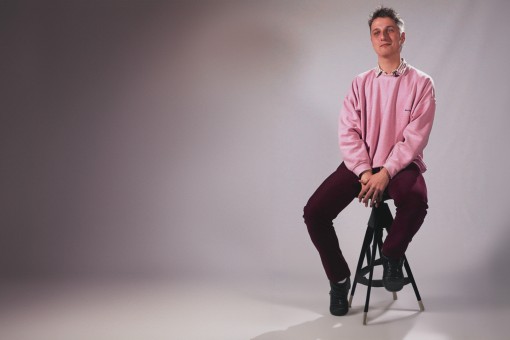 student Q & AIWhat happens when AI interviews a Creative Technology student?Welcome to Q&AI! A series in which we ask ChatGPT to come up with a bunch of study- and less study-related questions for our students. Lazy? Maybe. Fun? Yes. Surprising? Definitely! In this video: Joris, Creative Technology student.
student Q & AIWhat happens when AI interviews a Creative Technology student?Welcome to Q&AI! A series in which we ask ChatGPT to come up with a bunch of study- and less study-related questions for our students. Lazy? Maybe. Fun? Yes. Surprising? Definitely! In this video: Joris, Creative Technology student.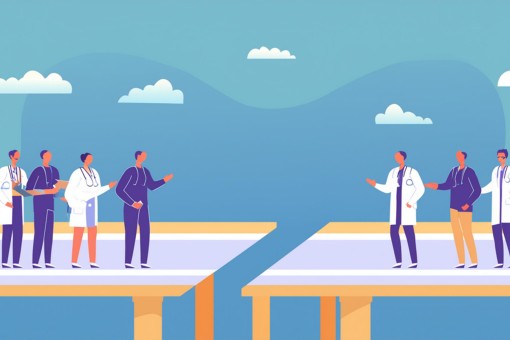 science HealthBeyond borders: this is the future of specialist careEnsuring access to specialist care at peak periods is challenging, especially in sparsely populated areas with fewer available healthcare specialists. Project BRIDGE tries to tackle this issue in an unconventional way: hospitals in the German-Dutch border region are joining forces to share healthcare personnel. As simple as this sounds, is it so in practice?
science HealthBeyond borders: this is the future of specialist careEnsuring access to specialist care at peak periods is challenging, especially in sparsely populated areas with fewer available healthcare specialists. Project BRIDGE tries to tackle this issue in an unconventional way: hospitals in the German-Dutch border region are joining forces to share healthcare personnel. As simple as this sounds, is it so in practice? science Circular EconomyThe plastics dilemma: Are biodegradable plastics the answer?We are living in the Plastic Age, such is the ubiquity of plastics in our lives. The plastic waste in water ecosystems alone is expected to nearly triple from 11 million tonnes in 2016 to 29 million tonnes in 2040*. Biodegradable materials, such as polylactic acid, are seen as an alternative for use in packaging, agriculture, and medical devices. But how biodegradable are these materials in reality? Could they be the plastics of the future?
science Circular EconomyThe plastics dilemma: Are biodegradable plastics the answer?We are living in the Plastic Age, such is the ubiquity of plastics in our lives. The plastic waste in water ecosystems alone is expected to nearly triple from 11 million tonnes in 2016 to 29 million tonnes in 2040*. Biodegradable materials, such as polylactic acid, are seen as an alternative for use in packaging, agriculture, and medical devices. But how biodegradable are these materials in reality? Could they be the plastics of the future?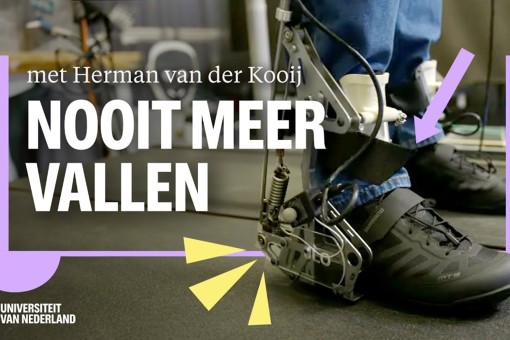 science HealthThis device will keep you from fallingGetting smarter, stronger and faster with technology. That is what UT professor Herman van der Kooij and his team are researching every day. At 'Universiteit van Nederland', he talks about the bionic man.
science HealthThis device will keep you from fallingGetting smarter, stronger and faster with technology. That is what UT professor Herman van der Kooij and his team are researching every day. At 'Universiteit van Nederland', he talks about the bionic man. science ClimateWill we be going on holiday in a hydrogen plane in 10 years' time?How can we make our holidays more sustainable? A question that concerns many engineers, scientists, and citizens. Emissions need to decrease, but in the aviation industry, that's not so simple yet. Research at the University of Twente is investigating a promising technology that could lead to hydrogen-powered airplanes: cryogenic superconductivity.
science ClimateWill we be going on holiday in a hydrogen plane in 10 years' time?How can we make our holidays more sustainable? A question that concerns many engineers, scientists, and citizens. Emissions need to decrease, but in the aviation industry, that's not so simple yet. Research at the University of Twente is investigating a promising technology that could lead to hydrogen-powered airplanes: cryogenic superconductivity.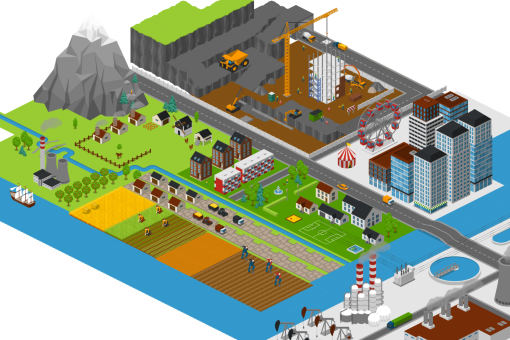 science Circular EconomyHow a Serious Game is Shaping Future LeadersUnsustainable development leads to resource scarcity and endangers our future. The traditional take-make-use-dispose in linear economy causes pressure on supply chains. The only way forward according to Devrim Yazan? A sustainable circular economy. But how do you educate students about the complexity of this sustainability approach?
science Circular EconomyHow a Serious Game is Shaping Future LeadersUnsustainable development leads to resource scarcity and endangers our future. The traditional take-make-use-dispose in linear economy causes pressure on supply chains. The only way forward according to Devrim Yazan? A sustainable circular economy. But how do you educate students about the complexity of this sustainability approach? student BachelorMinor, internship or a semester abroad: how to fill up your elective space as a bachelor's student?As a bachelor's student, you have quite some freedom of choice during your studies. In your third year, for example, during your elective space. While it can be great to have such freedom, it can also cause some stress. Because how do you fill that elective space? Will you go in-depth on a specific subject within your study programme, or do you want to broaden your scope and take subjects from another study programme? You might prefer to do an internship and gain work experience. Or will you go abroad for six months? Choices, choices, choices. Let us help you out with an overview of all of your options!
student BachelorMinor, internship or a semester abroad: how to fill up your elective space as a bachelor's student?As a bachelor's student, you have quite some freedom of choice during your studies. In your third year, for example, during your elective space. While it can be great to have such freedom, it can also cause some stress. Because how do you fill that elective space? Will you go in-depth on a specific subject within your study programme, or do you want to broaden your scope and take subjects from another study programme? You might prefer to do an internship and gain work experience. Or will you go abroad for six months? Choices, choices, choices. Let us help you out with an overview of all of your options!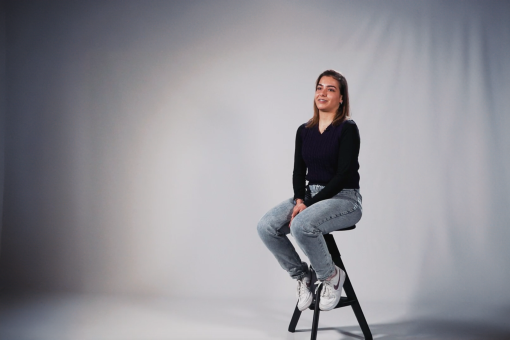 student Q & AIWhat happens when AI interviews an Educational Science & Technology student?Welcome to Q&AI! A series in which we ask ChatGPT to come up with a bunch of study- and less study-related questions for our students. Lazy? Maybe. Fun? Yes. Surprising? Definitely! In this video: Diana, Educational Science & Technology student.
student Q & AIWhat happens when AI interviews an Educational Science & Technology student?Welcome to Q&AI! A series in which we ask ChatGPT to come up with a bunch of study- and less study-related questions for our students. Lazy? Maybe. Fun? Yes. Surprising? Definitely! In this video: Diana, Educational Science & Technology student.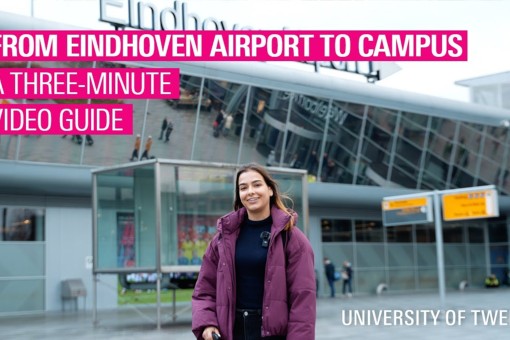 student InternationalsA three-minute video guide: How to travel from Eindhoven Airport to campusStarting as an international student in a country you don't know can be daunting. As an upcoming student of the University of Twente, it starts with travelling to the Netherlands. How do you travel from Eindhoven Airport to the campus? We will help you on your way!
student InternationalsA three-minute video guide: How to travel from Eindhoven Airport to campusStarting as an international student in a country you don't know can be daunting. As an upcoming student of the University of Twente, it starts with travelling to the Netherlands. How do you travel from Eindhoven Airport to the campus? We will help you on your way! science DigitalisationHow Digital Twin Cities are Shaping TomorrowMost of us have done it, walking through familiar streets or looking at your own house with a street view service. Now imagine doing this with a complete virtual replica. Every street, every car, every person walking to their work is meticulously simulated. This is a city digital twin. Discover how researchers at the Digital Twin Geohub of the University of Twente are transforming urban planning – one virtual city at a time.
science DigitalisationHow Digital Twin Cities are Shaping TomorrowMost of us have done it, walking through familiar streets or looking at your own house with a street view service. Now imagine doing this with a complete virtual replica. Every street, every car, every person walking to their work is meticulously simulated. This is a city digital twin. Discover how researchers at the Digital Twin Geohub of the University of Twente are transforming urban planning – one virtual city at a time. science DigitalisationCities are cloned in the virtual world to transform urban planningBy 2050, nearly 70% of the world's population will live in cities1. Urban planning decisions made today have a critical impact on the future, which means there is less room for trial and error. How can we address the increase in urban populations and make future cities more sustainable?
science DigitalisationCities are cloned in the virtual world to transform urban planningBy 2050, nearly 70% of the world's population will live in cities1. Urban planning decisions made today have a critical impact on the future, which means there is less room for trial and error. How can we address the increase in urban populations and make future cities more sustainable?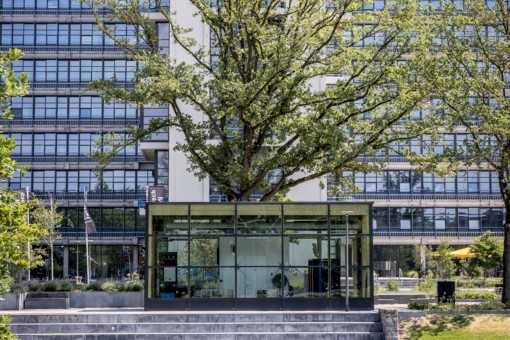 science ClimateThis glass laboratory could be the key to unlimited clean drinking waterA looming shortage of clean drinking water is screaming for innovations in water treatment. The Waterlab of the Membrane Science and Technology cluster gives an insight into possible solutions.
science ClimateThis glass laboratory could be the key to unlimited clean drinking waterA looming shortage of clean drinking water is screaming for innovations in water treatment. The Waterlab of the Membrane Science and Technology cluster gives an insight into possible solutions.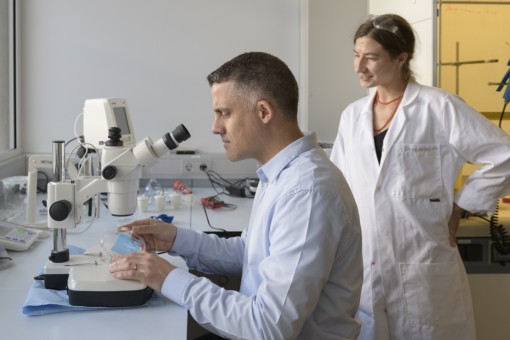 science HealthNeedle-free insulin injections are on the wayLee Calladine has been diabetic for 25 years and the insulin top-up routine is so familiar to him that he’s long past feeling squeamish about piercing his skin. Still, the practice is burdensome. Scientists at the TechMed Centre of the University of Twente are closing in on a pain-free method for people like Calladine.
science HealthNeedle-free insulin injections are on the wayLee Calladine has been diabetic for 25 years and the insulin top-up routine is so familiar to him that he’s long past feeling squeamish about piercing his skin. Still, the practice is burdensome. Scientists at the TechMed Centre of the University of Twente are closing in on a pain-free method for people like Calladine. science DigitalisationIdeal route for rubbish truck thanks to smart algorithmEvery resident of Twente knows them: the trucks of waste collector Twente Milieu driving through the streets to empty the green, orange or grey minicontainer. To ensure that the rubbish trucks empty the five million minicontainers annually as efficiently as possible, perfect route planning is needed.
science DigitalisationIdeal route for rubbish truck thanks to smart algorithmEvery resident of Twente knows them: the trucks of waste collector Twente Milieu driving through the streets to empty the green, orange or grey minicontainer. To ensure that the rubbish trucks empty the five million minicontainers annually as efficiently as possible, perfect route planning is needed.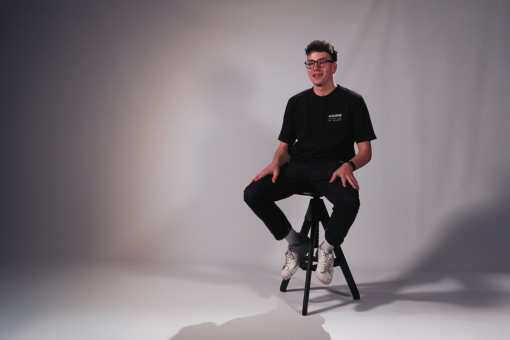 student Q & AIWhat happens when AI interviews a Communication Science student?Welcome to Q&AI! A series in which we ask ChatGPT to come up with a bunch of study- and less study-related questions for our students. Lazy? Maybe. Fun? Yes. Surprising? Definitely! In this video: Nils, Communication Science student.
student Q & AIWhat happens when AI interviews a Communication Science student?Welcome to Q&AI! A series in which we ask ChatGPT to come up with a bunch of study- and less study-related questions for our students. Lazy? Maybe. Fun? Yes. Surprising? Definitely! In this video: Nils, Communication Science student.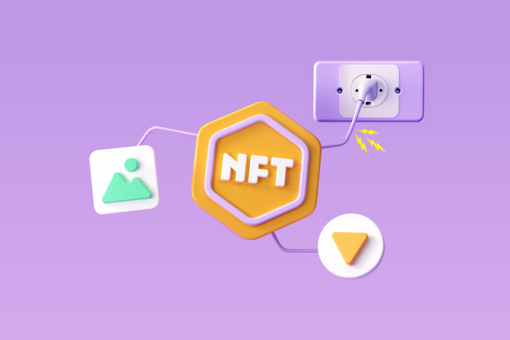 science DigitalisationThe pollution of our digital worldBitcoin, non-fungible tokens (NFTs), and other popular blockchain innovations represent our shift to a digital society. But this transition comes at a cost. The emissions generated by these blockchain technologies from the year 2021 alone are responsible for around 19,000 future deaths. This alarming statistic raises many questions: How is this possible and what can we do about it?
science DigitalisationThe pollution of our digital worldBitcoin, non-fungible tokens (NFTs), and other popular blockchain innovations represent our shift to a digital society. But this transition comes at a cost. The emissions generated by these blockchain technologies from the year 2021 alone are responsible for around 19,000 future deaths. This alarming statistic raises many questions: How is this possible and what can we do about it?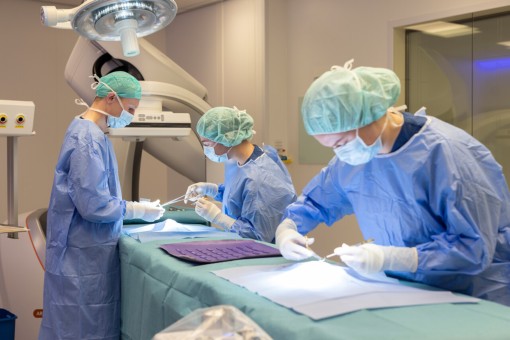 science HealthPushing boundaries in these medical labs at the University of TwenteEnter the fascinating world of medical science with this digital tour of the University of Twente's TechMed Centre!
science HealthPushing boundaries in these medical labs at the University of TwenteEnter the fascinating world of medical science with this digital tour of the University of Twente's TechMed Centre!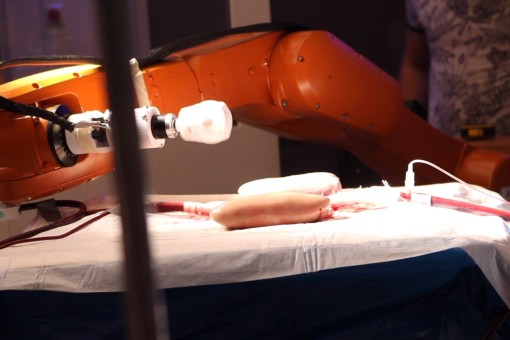 science HealthMini robot doctors inside your bodyA surgeon swimming through your body, it sounds like science fiction now, but it might be closer than you think. At the TechMed Centre at the University of Twente, tiny robots were already swimming through a detached aorta with kidneys. Discover the future of vascular surgery.
science HealthMini robot doctors inside your bodyA surgeon swimming through your body, it sounds like science fiction now, but it might be closer than you think. At the TechMed Centre at the University of Twente, tiny robots were already swimming through a detached aorta with kidneys. Discover the future of vascular surgery.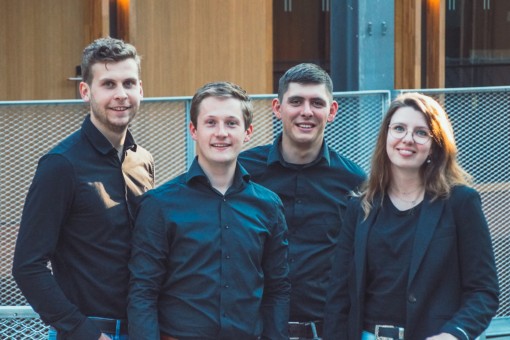 science TechnologyAn electric off-road motorcycle that can compete with internal combustion enginesUniversity of Twente startup STERN Motorcycles, unveils a revolutionary electric enduro motorcycle with a distinctive interchangeable battery pack. Their mission? A motorcycle world that embraces electric riding.
science TechnologyAn electric off-road motorcycle that can compete with internal combustion enginesUniversity of Twente startup STERN Motorcycles, unveils a revolutionary electric enduro motorcycle with a distinctive interchangeable battery pack. Their mission? A motorcycle world that embraces electric riding. science HealthFake surgery: 'miraculous scientific research'Is 'band syndrome' (bloating after eating) a medical condition or a psychological problem? That question has occupied medical science for decades. Prof Bob Geelkerken, professor at the TechMed Centre at the University of Twente and surgeon at Medisch Spectrum Twente, uses a special method to dispel the question marks once and for all: fake surgery.
science HealthFake surgery: 'miraculous scientific research'Is 'band syndrome' (bloating after eating) a medical condition or a psychological problem? That question has occupied medical science for decades. Prof Bob Geelkerken, professor at the TechMed Centre at the University of Twente and surgeon at Medisch Spectrum Twente, uses a special method to dispel the question marks once and for all: fake surgery.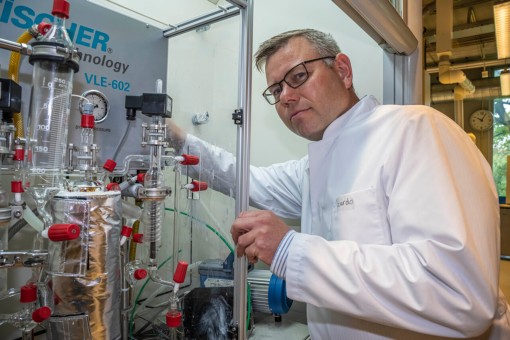 science Circular EconomyBreaking down waste and building it up like legoFor years, we've diligently sorted our waste, but a significant portion of the waste stream remains (yet) unrecyclable. The University of Twente, in collaboration with companies, is researching how to create new products from complex and 'wet' waste streams. This involves efficiently isolating chemical components used in new materials. The multi-year project ReBBloCS - Renewable Building Blocks from Complex and Wet Waste - began last year with a subsidy of €3.8 million from the Netherlands Enterprise Agency.
science Circular EconomyBreaking down waste and building it up like legoFor years, we've diligently sorted our waste, but a significant portion of the waste stream remains (yet) unrecyclable. The University of Twente, in collaboration with companies, is researching how to create new products from complex and 'wet' waste streams. This involves efficiently isolating chemical components used in new materials. The multi-year project ReBBloCS - Renewable Building Blocks from Complex and Wet Waste - began last year with a subsidy of €3.8 million from the Netherlands Enterprise Agency. science TechnologySmartwatches measuring loneliness among young peopleSmartwatches that map loneliness among students with specific needs, such as autism. Thanks to UT professor Carolien Rieffe and her team, this will soon be a reality. Carolien received a substantial sum of money from science financier NWO for the Building 4 Belonging project.
science TechnologySmartwatches measuring loneliness among young peopleSmartwatches that map loneliness among students with specific needs, such as autism. Thanks to UT professor Carolien Rieffe and her team, this will soon be a reality. Carolien received a substantial sum of money from science financier NWO for the Building 4 Belonging project.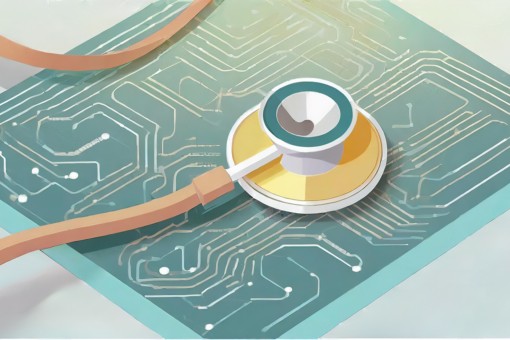 science HealthThe rise of the virtual doctorIf a family member has an inherited heart condition, there is a chance that you have it too. Usually, you will then receive a letter with information and an invitation for an interview about possible DNA testing. Researchers at the University of Twente are now testing whether they can approach people via a virtual doctor.
science HealthThe rise of the virtual doctorIf a family member has an inherited heart condition, there is a chance that you have it too. Usually, you will then receive a letter with information and an invitation for an interview about possible DNA testing. Researchers at the University of Twente are now testing whether they can approach people via a virtual doctor.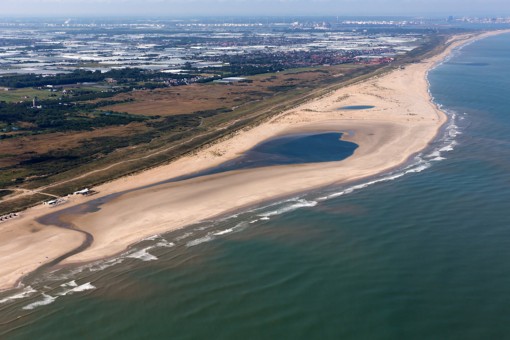 science ClimateGod created the earth, but the Dutch created the NetherlandsThe Netherlands has been fighting a battle against water for centuries. This symbolism of water as the enemy was popular among 20th-century engineers. In the 21st century, there is more focus on natural processes, and we speak of water management instead. But what will the Dutch water landscape look like in another century?
science ClimateGod created the earth, but the Dutch created the NetherlandsThe Netherlands has been fighting a battle against water for centuries. This symbolism of water as the enemy was popular among 20th-century engineers. In the 21st century, there is more focus on natural processes, and we speak of water management instead. But what will the Dutch water landscape look like in another century?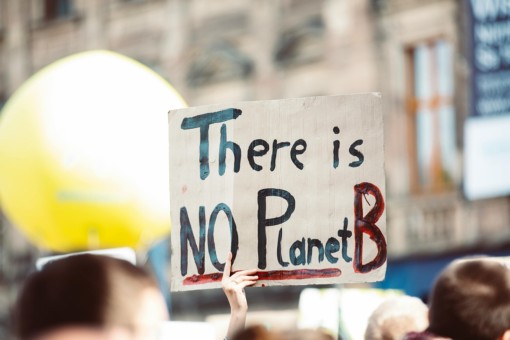 science ClimateWhy we need to think about a climate plan BCan we limit global warming to 1.5 oC? Unlikely, if you'd ask Debra Roberts. The co-chair of the Intergovernmental Panel on Climate Change (IPCC) is already brainstorming about a plan B. What could be our next steps?
science ClimateWhy we need to think about a climate plan BCan we limit global warming to 1.5 oC? Unlikely, if you'd ask Debra Roberts. The co-chair of the Intergovernmental Panel on Climate Change (IPCC) is already brainstorming about a plan B. What could be our next steps? science TechnologyUnravelling nano mysteries: Metal nanodroplets go skiingBrace yourself for a mind-boggling journey into the tiny world of nanotechnology. This research area focuses on materials existing of just a few atoms or small molecules. Sometimes, the smallest structures hold the key to groundbreaking advancements. On this scale, the world doesn't follow the same rules.
science TechnologyUnravelling nano mysteries: Metal nanodroplets go skiingBrace yourself for a mind-boggling journey into the tiny world of nanotechnology. This research area focuses on materials existing of just a few atoms or small molecules. Sometimes, the smallest structures hold the key to groundbreaking advancements. On this scale, the world doesn't follow the same rules.
Filter
